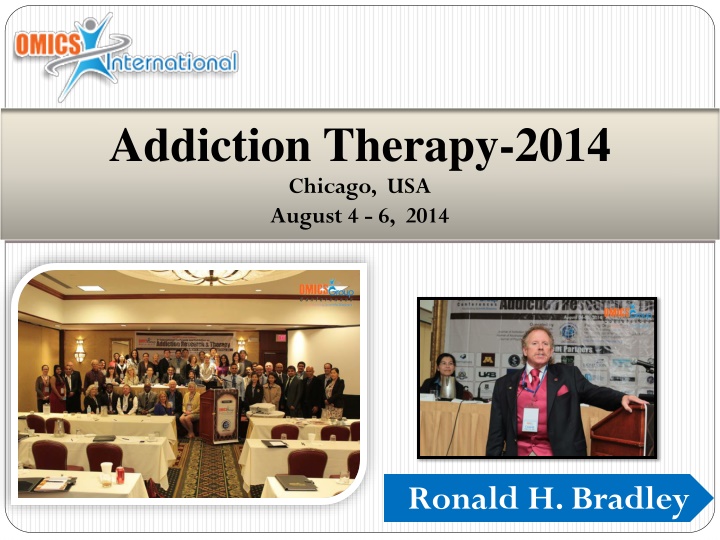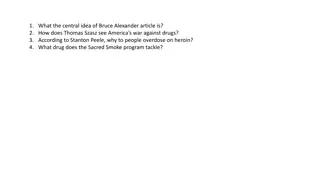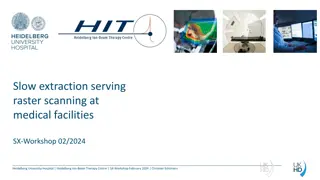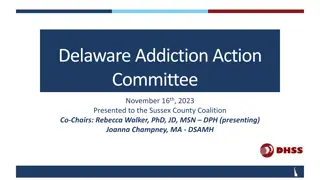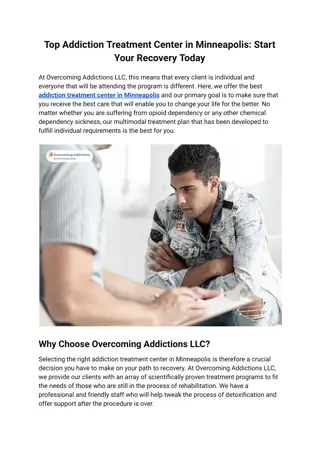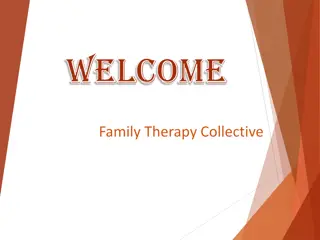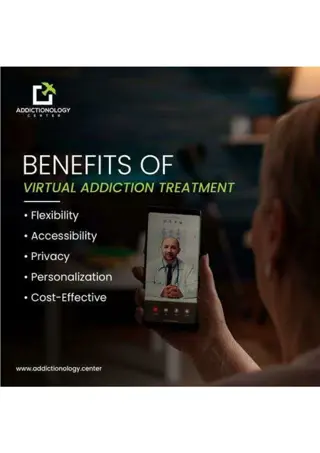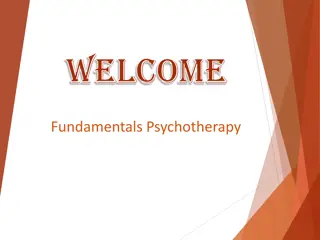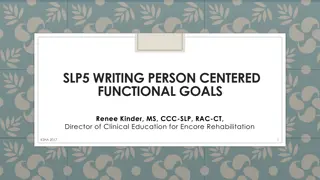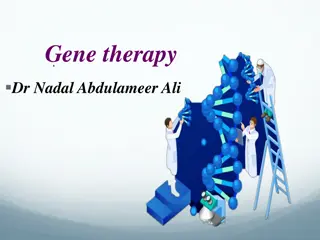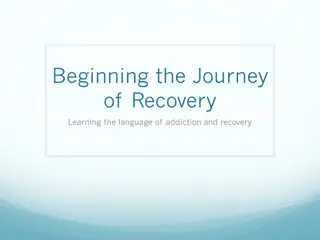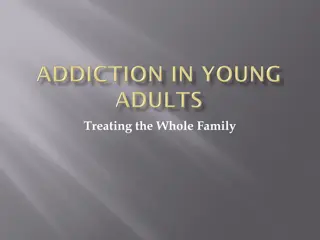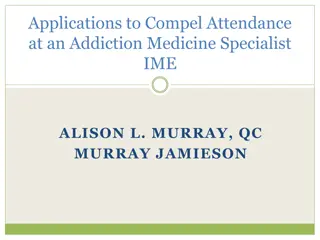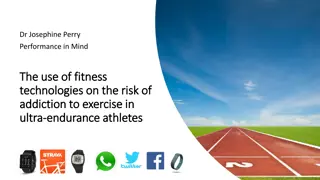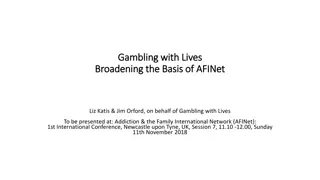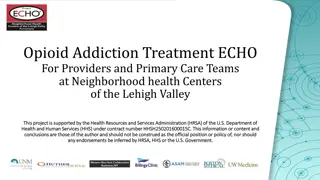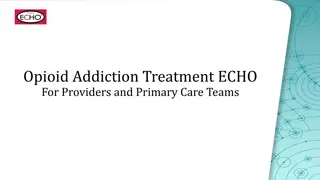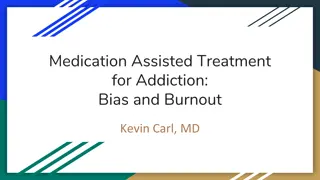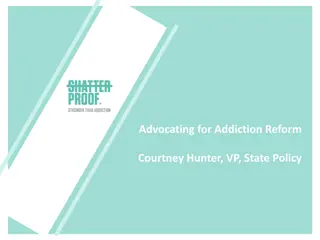Addiction Therapy-2014
Integration of medical care within community mental health is crucial for addressing chronic medical conditions in the public mental health sector. This approach aims to achieve cost savings and improve outcomes for individuals with serious mental illness (SMI) who also have substance abuse issues. The strategy involves a combination of comprehensive health care management and coordination to enhance overall well-being and reduce barriers to care.
Download Presentation

Please find below an Image/Link to download the presentation.
The content on the website is provided AS IS for your information and personal use only. It may not be sold, licensed, or shared on other websites without obtaining consent from the author.If you encounter any issues during the download, it is possible that the publisher has removed the file from their server.
You are allowed to download the files provided on this website for personal or commercial use, subject to the condition that they are used lawfully. All files are the property of their respective owners.
The content on the website is provided AS IS for your information and personal use only. It may not be sold, licensed, or shared on other websites without obtaining consent from the author.
E N D
Presentation Transcript
Addiction Therapy-2014 Chicago, USA August 4 - 6, 2014 Ronald H. Bradley
Psychiatric SMI Medical Home Model: Integration of Medical Care within Community Mental Health: Affordable Care Act cost savings in Real Dollars Ronald H. Bradley, D.O., Ph.D. Senior Associate Dean of Clinical Affairs Central Michigan University, College of Medicine Integrity Respect Compassion Inclusiveness Social Responsibility Excellence Innovation
The Problem: Objective: Medical Illness and Premature Mortality in the Public Mental Health Sector Know: What works in SMI Population Know: Do I want to be involved
TOTAL PHARMACY SPENDING VS. BH SPENDING Total Annual Pharmacy Spending (all drugs):$913,350,041 $389,475,908 or 43% Behavioral Health Drugs $523,874,133 or 57% Non-Behavioral Health Drugs 5
Numerous barriers that are innate to the SMI who have substance abuse issues that also have chronic medical conditions (CHF, CAD, DM-II, HPTN, etc.)
Medicaid State Spending Per Beneficiary Per Month* $671.24 Minnesota $585.03 Ohio $533.82 Pennsylvania $483.71 Illinois $468.05 Indiana $456.63 Michigan $456.09 Wisconsin $0 $100 $200 $300 $400 $500 $600 $700 $800 Ping 7
Boardman (2) reviewed the patient sampling of other researchers and he found that the SMI had an 88% occurrence of one chronic medical illness as well as 51% of two chronic medical illnesses
Health Home Navigation in a Recovery-Oriented System of Care, was obtained to address these issues. The health home was used to mean a combination of comprehensive health care management, care coordination and health promotion, comprehensive transition care (including appropriate follow up from inpatient to next level of care), patient and family supports, referrals to community and social services, and use of health technology to linkservices as described in the Patient Protection and Affordable Care Act (PPACA), section 2703.
Prevention of psychiatric hospitalization, sub-acute detoxification and sobering facility admissions, and the effective management of chronic disease, with concomitant improvement in health status, are target goals of Patient Protection and Affordable Care Act (PPACA), Section2703 and the pilot behavioral health home. The focus is on the integration of physical and mental health care.
Tertiary Prevention: Effective Treatment of Chronic Illness-DOES NOT FUNCTION
THIS DOES NOT WORK:Care Delivery: Building a Medical Home for People with SMI Collocated Models: Bring care onsite: No resources Facilitated Referral: Link to community medical providers: Does Not work Partnership: Develop a relationship between a CMHC and medical provider-Difficult to connect Silo s
Summary: Integration In CMH Psychiatric HOME By same day appointment for either medical or psychiatric cut total expenses by 80% medical/psych Decrease inpatient for both medical and psychiatric care by 80% Treatment of Substance Use disorders Treatment of Prison population with Court System to keep mentally ill out of jail as long as the client engaged with treatment
Meet the eminent gathering once again at Addiction Therapy-2015 Florida, USA August 3 - 5, 2015 Addiction Therapy 2015 Website: addictiontherapy.conferenceseries.com
